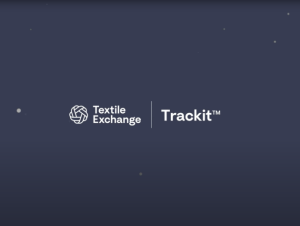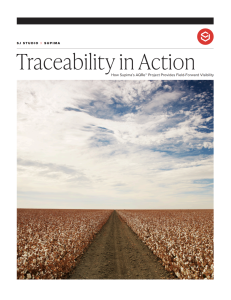- Home
- Success Stories
- H&M Group: Scaling Traceability at Industry Level
H&M Group: Scaling Traceability at Industry Level

H&M’s Traceability Journey
Technology
Based on successful pilots that traced over 1.5 million garments in 2021, H&M Group is now one of the first fashion retailers to scale blockchain-based traceability across their entire supply chain. They aim to trace over 200 million garments by end of 2022, representing up to 20% of their material base by volume, with plans to increase this further in subsequent years.
Implementation & Scale
H&M Group’s partnership with TextileGenesis began in 2020 after the platform won the H&M Foundation’s Global Change Award. The collaboration has evolved through several phases:
- Pilot Phase (2020-2021): Successfully traced 1.5 million garments using blockchain technology
- Scale-up Phase (2022): Roll-out across all man-made cellulosic fibers and recycled polyester
- Target Volume: 200+ million garments traced annually
- Supply Chain Coverage: Hundreds of suppliers onboarded across multiple countries
Materials & Impact
The traceability program focuses on H&M’s priority sustainable materials, aligning with their 2030 sustainability goals:
- Man-made cellulosic fibers (wood-based materials like viscose and lyocell)
- Recycled polyester (94% of all polyester used is now recycled)
- Coverage: Up to 20% of total material base by volume
- Integration: Real-time tracking from fiber to final product using Fibercoins digital tokens
This directly supports H&M’s achievement of 89% recycled or sustainably sourced materials in commercial products and 29.5% recycled materials – nearly reaching their 30% target a year early.
Technology Integration
H&M leverages Textile Genesis’s comprehensive platform features:
- Blockchain verification ensuring authenticity of sustainable fibers
- Digital twins (Fibercoins) tracking each kilogram of fiber through the supply chain
- Multi-tier visibility across 5-6 supply chain levels
- Real-time data capture from fiber producers to retail
- Integration with certification standards including FSC, RWS, and recycled content verification
Industry Leadership
H&M’s implementation represents one of the largest commercial deployments of textile traceability technology, setting new benchmarks for the fashion industry. Their approach of training hundreds of suppliers and creating scalable systems demonstrates how major retailers can drive industry-wide adoption of transparency tools.
“H&M Group believe that supply chain traceability and transparency should go hand-in-hand to create greater accountability for where materials and products come from and to drive positive change in the fashion industry.”
Merel Krebbers, Product Owner Fiber to Product Traceability at H&M Group
Read H&M Group’s full Sustainability Report 2024 to explore their comprehensive approach to traceability here.










